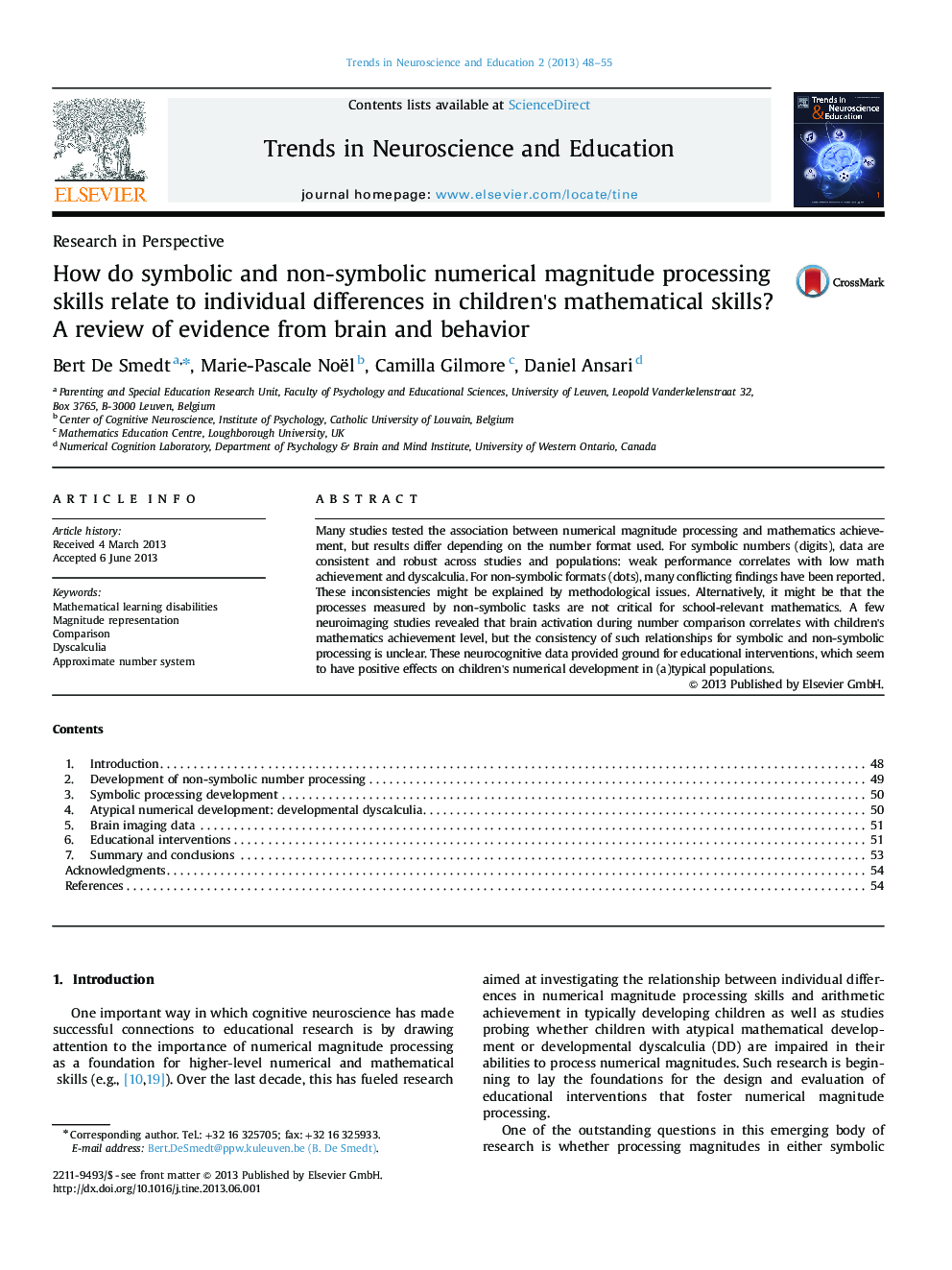| کد مقاله | کد نشریه | سال انتشار | مقاله انگلیسی | نسخه تمام متن |
|---|---|---|---|---|
| 6042900 | 1190874 | 2013 | 8 صفحه PDF | دانلود رایگان |
Many studies tested the association between numerical magnitude processing and mathematics achievement, but results differ depending on the number format used. For symbolic numbers (digits), data are consistent and robust across studies and populations: weak performance correlates with low math achievement and dyscalculia. For non-symbolic formats (dots), many conflicting findings have been reported. These inconsistencies might be explained by methodological issues. Alternatively, it might be that the processes measured by non-symbolic tasks are not critical for school-relevant mathematics. A few neuroimaging studies revealed that brain activation during number comparison correlates with children's mathematics achievement level, but the consistency of such relationships for symbolic and non-symbolic processing is unclear. These neurocognitive data provided ground for educational interventions, which seem to have positive effects on children's numerical development in (a)typical populations.
Journal: Trends in Neuroscience and Education - Volume 2, Issue 2, June 2013, Pages 48-55
